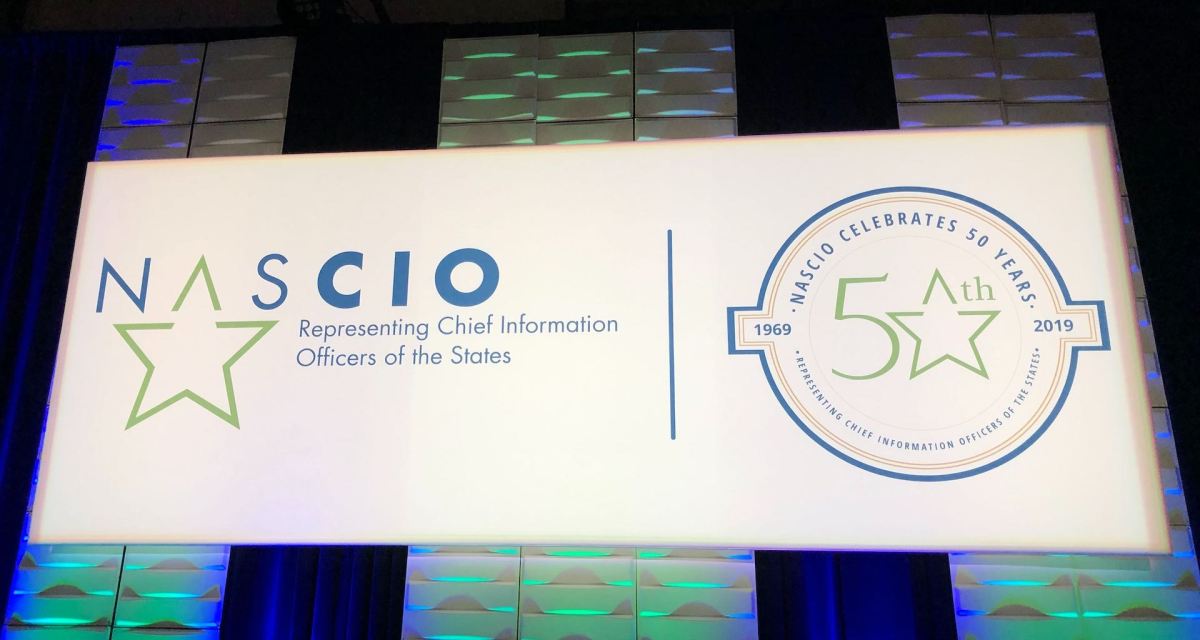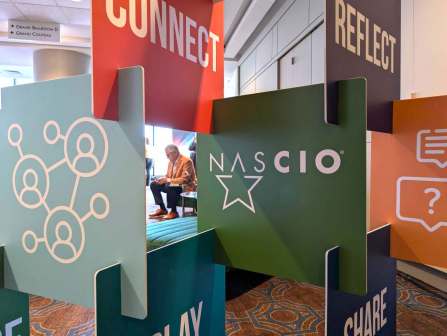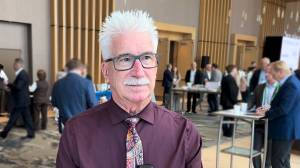NASCIO replaces canceled midyear conference with virtual panels

Attendees of the National Association of State Chief Information Officers’ midyear conference won’t be able to gossip in the hallways or play “Are You Smarter Than a CISO,” because neither hallways nor games are included in next week’s virtual event. But organizers said they’ve put together a truncated series of sessions that strike a balance between the new reality imposed on government by the COVID-19 pandemic and the usual topics facing government IT officials, like cybersecurity and IT modernization.
NASCIO last month canceled the in-person event that was scheduled to occur May 3-5 at a hotel in Maryland, following public-health directives banning large gatherings. The conference, which typically attracts between 400 and 600 attendees, will now be hosted on the GoToWebinar platform, where technology officials, trade association representatives, vendors and other guests can get the latest information and trends on government technology.
“I’m personally sad we’re not going to have an in-person one and I know everyone else is, but best to be safe right now,” said Meredith Ward, NASCIO’s director of policy and research. “The biggest reason we’re not doing an all-day Monday or all-day Tuesday traditional virtual conference is because — our members love us and I know that — but I just don’t think anyone wants to sit for eight or nine hours and talk about this stuff. And no one’s brain I think is there.”
The five-session event begins with Tennessee CIO Stephenie Dedmon, Washington CIO Jim Weaver and Massachusetts CIO Curtis Wood discussing how the pandemic has changed their work.
“They will be talking about their perceptions in a time of crisis as well as lessons learned so far, what they were ready for, what they weren’t ready for, what surprised them and then they’ll talk a little more in detail about the tactical things, how they scaled up for all the remote work, different increased cybersecurity threats, that kind of stuff,” said Emily Lane, NASCIO’s program and brand director.
The event ends with a session called “The Path Forward: Life and Work After COVID-19,” hosted by Utah CIO Mike Hussey, Georgia CIO Calvin Rhodes and Rob Atkinson, president of the Information Technology and Innovation Foundation.
To replace the networking aspect of a live conference, NASCIO is hosting an online message board where people can share their thoughts on the sessions.
“Once it’s over people can go over there and still do the kind of hallway debriefings that they would have done,” Lane said. “We know it’s not the same, we’re not pretending that it is the same but we are trying to give people some creative outlets.”
Lane said NASCIO will also extend its programming with a series of weekly “roundtable” chats featuring its members discussing what’s going on in their states. Lane said there will be five of these events and more information will be released during the virtual event’s corporate member session on May 4.
Ward said she’s confident about the content lined up, but that she knows it won’t be the same.
“So many people in our industry, in the private sector, in the public sector, are very gregarious extraverts and they like that conference setting,” Ward said. “I get very energized by NASCIO conferences and I know a lot of other folks do too. I think we’re doing the best of what we can do right now in that spirit of ‘we’re all in this together’ and still delivering good content and just hoping and looking forward to our fall annual conference.”
NASCIO’s annual conference is scheduled for Oct. 11-14 in Minneapolis, but Ward said it’s still unclear whether that event will also need to be moved online.






